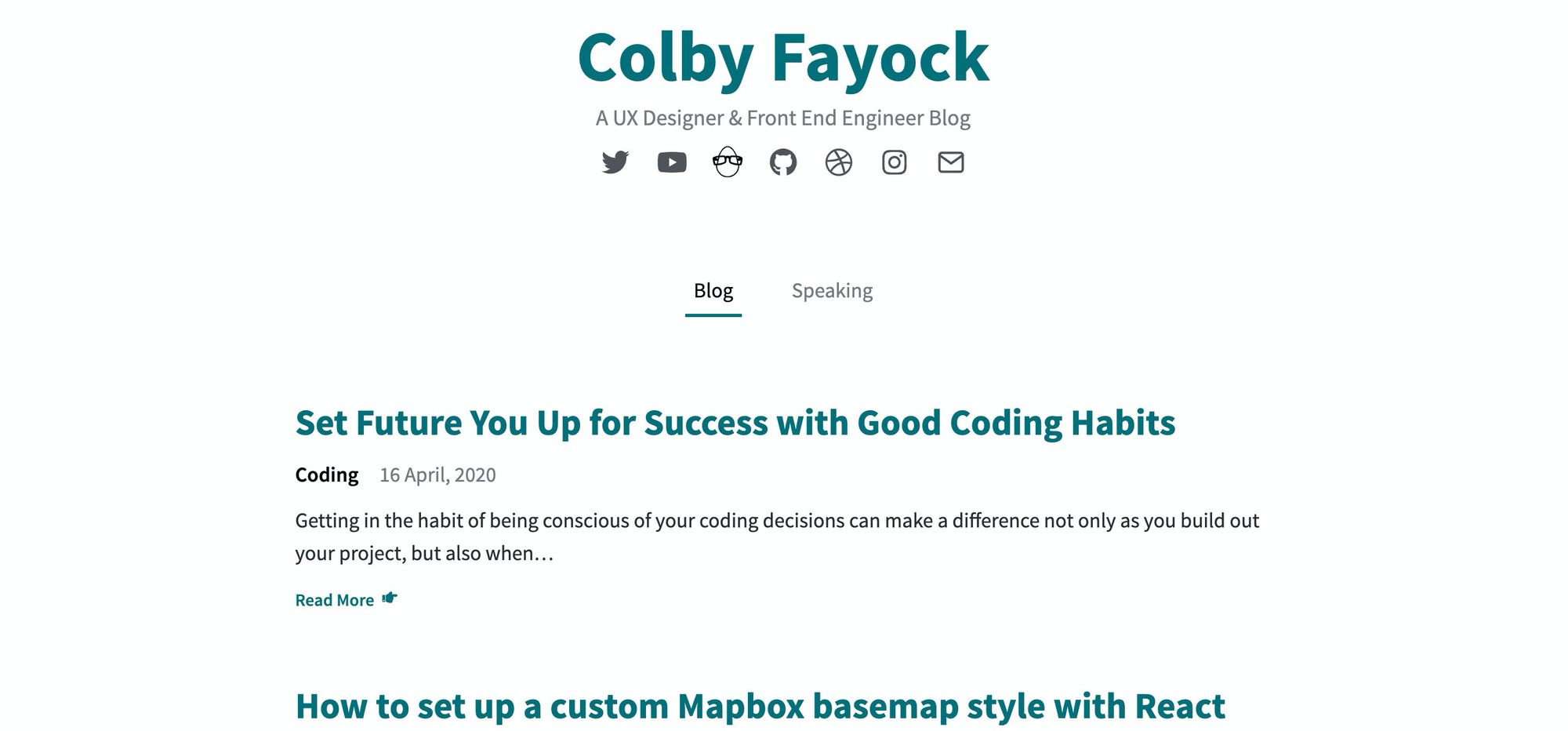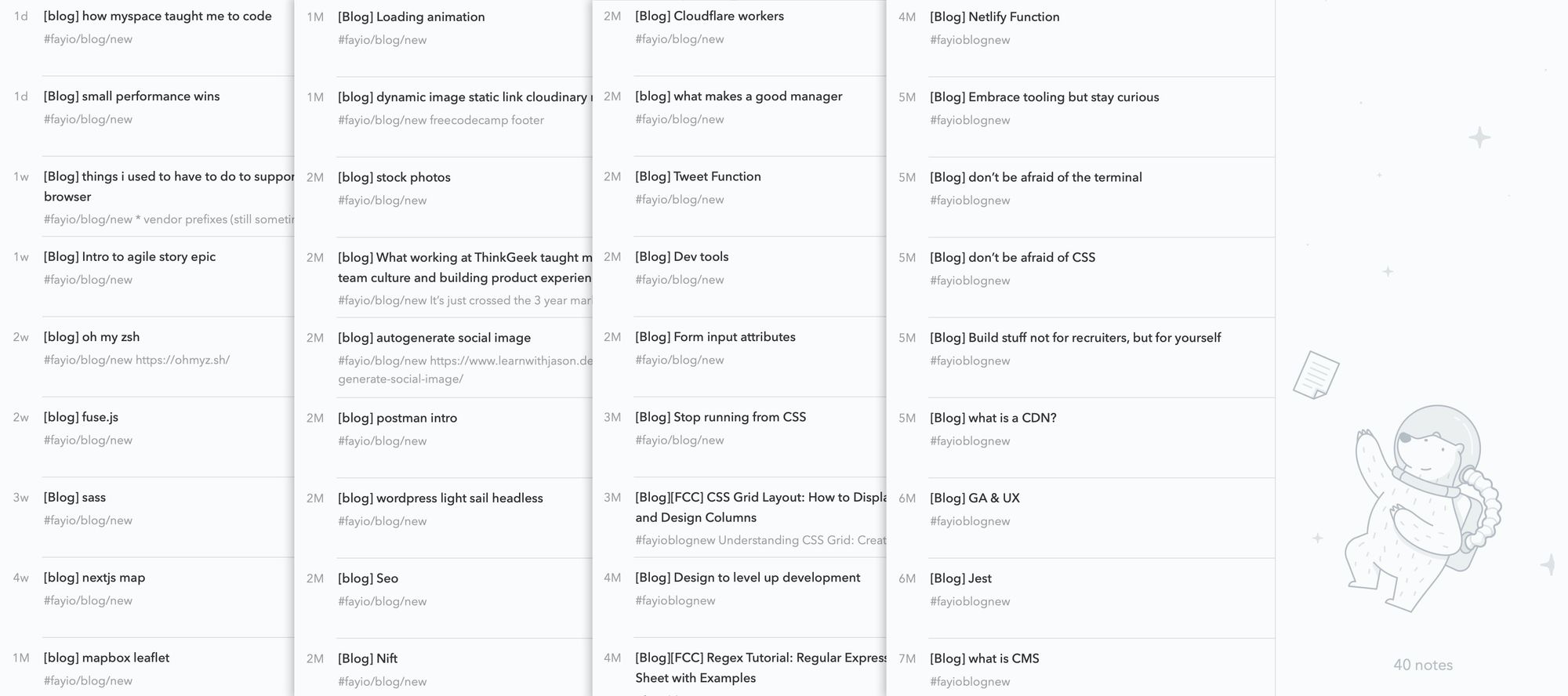Overcoming Your Fear of Writing and How You Can Find Motivation
Writing about our work is one of those things that most of us have on our to-do list. But whether it's due to procrastination or fear, we never actually get to it. Here's some more motivation and reasons why you should give it a shot!
Why should we write in the first place?
Maybe you've never thought about writing before or maybe you're looking for a little more motivation. Whatever the case, there are a lot of good reasons why writing can help us grow.
Helping others to learn
Coding can be tough. And we all started somewhere at the beginning.
It's a long journey that each of us go through and it's even harder to go at it alone. Luckily, we've had websites like freecodecamp.org and css-tricks.com along the way that have made that journey more manageable, but there's always going to be a challenge that just doesn't make sense.

This is where we have an opportunity to share our experiences to help others grow. While our favorite coding sites have tons of amazing tutorials, maybe they're missing a key point someone needed to fully grasp the solution. Whether you're at the beginning or middle of your journey, every experience, big or small, can help another developer on their own journey.
And this is where it can be rewarding. One of my favorite parts of writing has been getting a Twitter DM about how one of my tutorials helped them learn. It's a great feeling knowing you helped someone else on their journey.
Take this as a way for you to give back to the community that helped you learn and grow.
Reinforcing your learning
Thinking back to your grade school Spanish class, one of the tricks to helping the students learn was to reinforce learning. Teachers use different methods like reading, writing, speaking, flashcards, or even that Cinco de Mayo fiesta where you learned about and celebrated Mexico's heritage to help make the language stick.
This applies to development concepts as well. While your solution is still fresh in your head, write it down! Being able to teach what you've learned by writing about it will help those concepts stick in your head.
And just because you write it, it doesn't mean you have to share it. If you're not comfortable sharing it with the world, just keep a copy in a private notebook. You'll always be able to reference it yourself and still reinforce what you know by writing it down.
Documenting our experiences
Doubling up on reinforcing your learning, by writing about your experiences, your kind of creating your own personal StackOverflow with a list of problems you've already solved.
As much as we had hoped we would remember how to speak Spanish from the classes we took, 10 years goes by pretty quickly and you suddenly realize you can only correctly say "hola" in Spanish.

If you were the ambitious type, maybe you saved all of your notes. If not, maybe you remember a good website that has flashcards.
Either way, having resources to go back to, whether it's your own notes or that website you still have bookmarked, helps us to quickly reference challenges we've already come across. By writing down your experiences, you're adding to that digital notebook that you know you can always use to remember that quirk you fixed.
Growing your personal network
Everyone has their own reasons for wanting to write and share content — and that's okay! While some of us might be doing this to help others learn, others might be simply trying to get a job or grow their Twitter following.
One of the benefits of sharing your experiences is that you're immediately growing the network of developers that have a little more insight into who you are and the work you've done.
This doesn't guarantee a job, but it certainly can help. All teams are a little different in how they recruit. Smaller teams tend to include other developers more in the beginning of the process who are probably more likely to open your blog and not only read a little bit, but actually understand it.
But even if you don't immediately get hired, you're playing the long game. Opportunities will start to come in small ways that lead to bigger opportunities down the road.
Why you might be hesitating and how we can look at it another way?
Sometimes motivation isn't enough. We all have our personal challenges that might prevent us from doing something we want to do. But sometimes it's a matter of finding a different perspective to give you that bit of inspiration to finally dive in.
Imposter syndrome — who am I to write about this?
This is something I've personally struggled with for the majority of my career. Whether I was confident in my ability to do my job or not, I never felt like it was enough to be one of the people writing guides for others.

It wasn't until another team member brought another perspective to this argument (thanks Marquet) — everyone learns differently and maybe my way of telling a story can help someone learn.
If someone doesn't read my work, what are the consequences beyond a little bit of wasted time? On the other hand, maybe my blog post resonated with someone in a way that other blog posts didn't and they were finally able to solve their problem.
And this goes for any level of experience. As Swyx says, the fastest way to learn is in public. If you're not helping someone else, you're at least helping yourself grow.
Finding time — it takes a while to write a post
Time is a funny thing — it becomes an excuse that we use when we don't want to admit the real reason we're holding back.
Of course that's not always the case. Realistically a lot of us have a ton on our plates already whether we work, take care of a family, or are volunteering to help others. It can be a struggle to not want to just sit on the couch after a hard days work.
But consider the free time you do have. Can you spare 10 minutes jotting down a few notes or even starting an outline of some things you want to say?
While 10 minutes won't write a whole post, if you start the habit and write another paragraph or two every day, you'll slowly end up with a blog post that you can feel good about sharing.
Just don't set the bar too high. If you start off with an unrealistic goal, you're likely to burn out fast and end up back in the same position you're at now.
No topic — not knowing what to write about
From speaking with other developers, I've noticed this seems to be tied a little bit to imposter syndrome. Maybe you're getting confident enough that you're more willing to write, but you're struggling to find what to write about. Is it because you can't think of a topic or is it because every topic you think about, you don't think you're enough of an expert to write about it?
Not having a topic can be a legitimate problem, but there's inspiration all around us. If you're working every day as a developer, you're working on problems that you ultimately need to solve. Why not write about those problems? And if you can't write about the problems due to contract concerns, what about writing about them in an abstract way without any sensitive information?
Inspiration for me comes from my experience talking with others. I'm lucky to be on a team that encourages growth of junior developers and during my time helping them out, their questions lead me to think about topics that I took for granted.
Whenever a topic like that comes up, I immediately note it down for later. This topic was on that list! Over time, my list of topics has grown to a point where I don't think I'll even finish it by the end of the year.

While that could feel overwhelming, it's also motivates me to have a bigger selection of what I'm in the mood to write about rather than forcing myself to both think of a new topic and write about something I don't want to write about each week.
Whatever the case, find your source of inspiration. You don't need to be an expert on it. It doesn't matter if someone more experienced already wrote about it. Write what you know. Share your experiences. Maybe you'll help someone see the problem from a different perspective.
Finding what motivates you
At the end of the day, writing is something that each of us will need to find our own motivation to do.
Try to evaluate your goals. What are you looking to achieve? If writing is something you truly want to do, you'll need to find your own source of inspiration.
While some reasons might be more valid than others, it's easier to find reasons not to do something than it is to do it.
You got this! 💪
